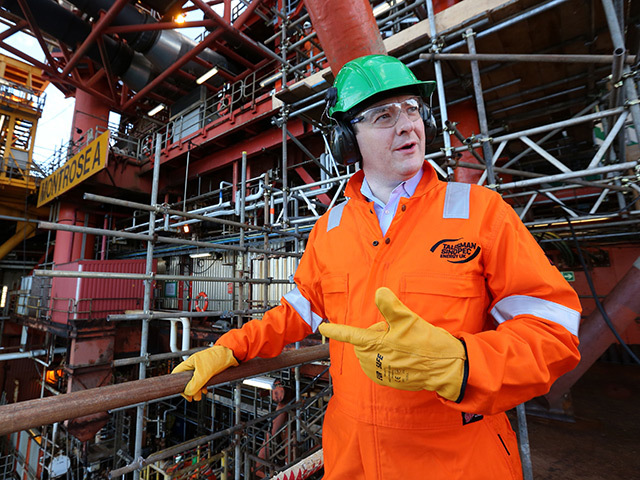
I was delighted to spend the beginning of this week in Aberdeen, and not only because of the glorious weather.
Firstly, it gave me the opportunity to pay my own respects to the four brave professionals who died in the helicopter crash off Shetland.
During the moment’s silence at Offshore Europe yesterday, the strength of feeling for lost colleagues was palpable. The wider community in Aberdeen has also been affected deeply, as has been evident in the pages of the Press and Journal.
The loss of Duncan Munro, Sarah Darnley, Gary McCrossan and George Allison – as with the Piper Alpha tragedy 25 years ago – only serves to remind the whole country of the massive debt we owe to the men and women who work offshore, helping deliver energy for every family in Britain.
I got to see that professionalism for myself yesterday when I flew to Talisman Sinopec’s Montrose platform.
We don’t talk often enough about the achievement of the trailblazers who helped establish this industry in the 1970s, or about the half a million jobs the North Sea supports – or the fact that it meets more than half of UK demand for oil and gas.
As the basin becomes more mature, industry knows that finding very large new fields isn’t going to happen as often as it did.
The world-class specialists in the North Sea have the expertise to extract the remaining reserves, and many companies, particularly newer players like Talisman Sinopec and Apache, want to invest.
But they can’t do it without government giving the right support on tax. That’s why we’re offering a world first – long-term certainty on decommissioning relief through the legally binding deeds I have launched.
Platforms like the one I visited will be viable for longer. Industry themselves believe this, together with the various field allowances I’ve created or extended, will unlock billions in investment, securing jobs and skills in the coming decades.
In short, we’re committed to this ingenuous industry for the long haul. We can afford this kind of commitment because the UK has broad shoulders.
Our decommissioning commitment is big but represents 1% of UK GDP.
Those who want a separate Scotland must acknowledge that, in the event of independence, that proportion would be much higher – around 12% of the Scottish economy.
The Scottish Government has yet to explain how they would pay for that commitment, or indeed when they would be able to set up the sovereign oil fund they have promised without massive tax increases or cuts in health and education spending.
Alex Salmond claimed this week that the “time is now” to establish an oil fund, but his energy minister has already admitted that the fund couldn’t start until – or indeed if – Scotland was in a substantial surplus.
All they are offering to industry, and to the Scottish people, is confusion and contradiction.
The UK Government, with its tax reliefs and incentives, is bringing clarity and certainty. The oil and gas market is inherently volatile. The broad shoulders of the UK can bear the burden of managing that volatility – which at its peak has been a third of the entire budget of the Scottish Government – while still supporting this great industry.
